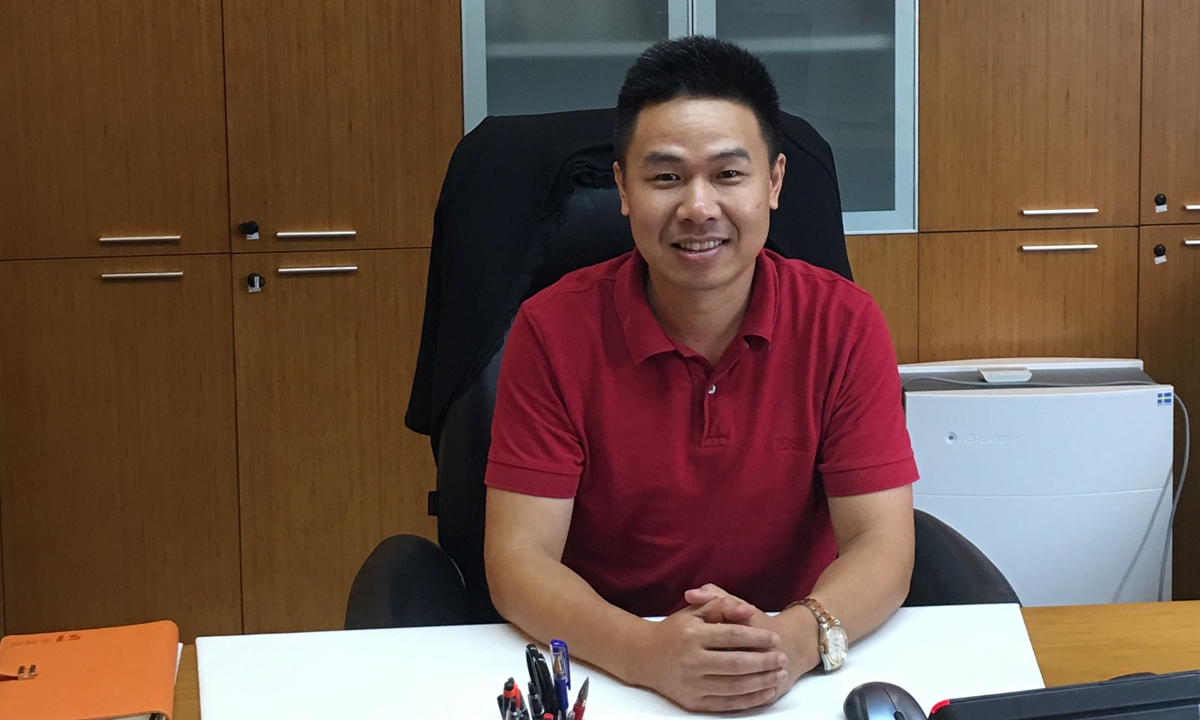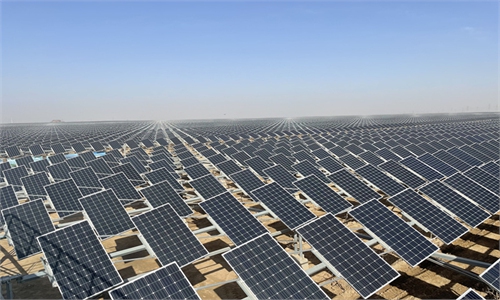SOURCE / PRESS RELEASE
China’s path to innovate solar encapsulation materials

Zhao Shijie
Zhao Shijie, majoring in chemistry, did not expect that he would begin a career in photovoltaic encapsulation materials upon graduation. Despite being in his 40s, Zhao has been running businesses in the solar industry across China for over two decades and has his own solar success story.
Witnessing the development of solar encapsulation materials in China, Zhao experienced the period of dependence on encapsulation materials imported from foreign countries about 20 years ago.
Inspired by Ding Kongxian, founder of Shenzhen-based new energy firm Jiawei, also the first company to run solar lights business in China, Zhao began exploring encapsulation materials of solar panel for lights.
He was cobbled when he founded Dongguan Yonggu Insulation Material Co in 1998 to complete R&D for epoxy resin glue for solar lights panels as the industry was totally blank then. Upon 100 failed experiments, Zhao finally worked out a glue named 111A/B, which dominated the domestic market two years later, Zhao said.
Since 2000, medium- and small-sized solar firms have sprung up like mushrooms after a spring rain, despite the nation's solar industry still being in its initial stage.
During that time, EVA, a kind of material used in photovoltaic modules encapsulation, were monopolized by some key producers including Specialized Technology Resources (STR) from the US, Mitsui Chemicals and Bridgestone from Japan, and SKC and Hanwha from South Korea.
Faced with such conditions, domestic component factories had to deal with problems such as high prices, extended delivery time and after-sales woes. As one of the marketing participants, Zhao saw marketing potential and hoped that he could resolve problems for his consumers.
Zhao wanted to copy his previous successes and started his exploration on EVA materials, which tend to be softer and more cost effective than rubber. The question, "How can we break the monopoly of foreign companies?" puzzled Zhao for quite a while.
Breaking the monopoly
Zhao then founded a new company, Jiangsu Sveck New Materials Co in 2005 to complete EVA R&D. Zhao and his team lived in the factory and went everywhere to seek suitable materials. Because they couldn't get needed equipment for production, they drew design paper and did welding themselves.
During the Chinese Spring Festival that year, Zhao and his team ate instant noodles in order to solve their tech problems. After failing thousands of times, they eventually succeeded.
However, he met new difficulties, as most consumers doubted the quality of his products. Zhao recalled that one of his consumers told him that his firm would use Zhao's products only when the leading Chinese solar-panel maker at that time (Suntech Power) recognized their products.
Zhao afterwards realized the importance of production line self-design and mastered formula know-how. Upon completing multiple strict tests, Zhao's EVA materials finally got the industrial leaders' recognition and later brought Zhao success, making his company one of the leading EVA providers globally.
Meanwhile, Zhao understood the lack of EVA industrial standards in China was one of the main reasons that domestic components companies only trusted foreign suppliers. Along with other solar material firms, power stations and other related participants, Zhao drafted EVA industrial standards and its related testing standards in order to regulate the industry.
Under the guidance of industrial policy and driven by market demand, China's photovoltaic industry has achieved rapid development, and has become one of the few industries which has edge on its global competitors, according to a report released by the China Photovoltaic Industry Association (CPIA) in February.
As vice director of the photovoltaic auxiliary materials and components products committee under CPIA, Zhao noted that the industry should avoid overcapacity as upstream and downstream firms need healthy competition; and, only with advanced tech can the industry maintain a leading role globally.
Especially for key equipment and materials, domestic firms should enhance cooperation and coordination to avoid restrictions by foreign countries.

